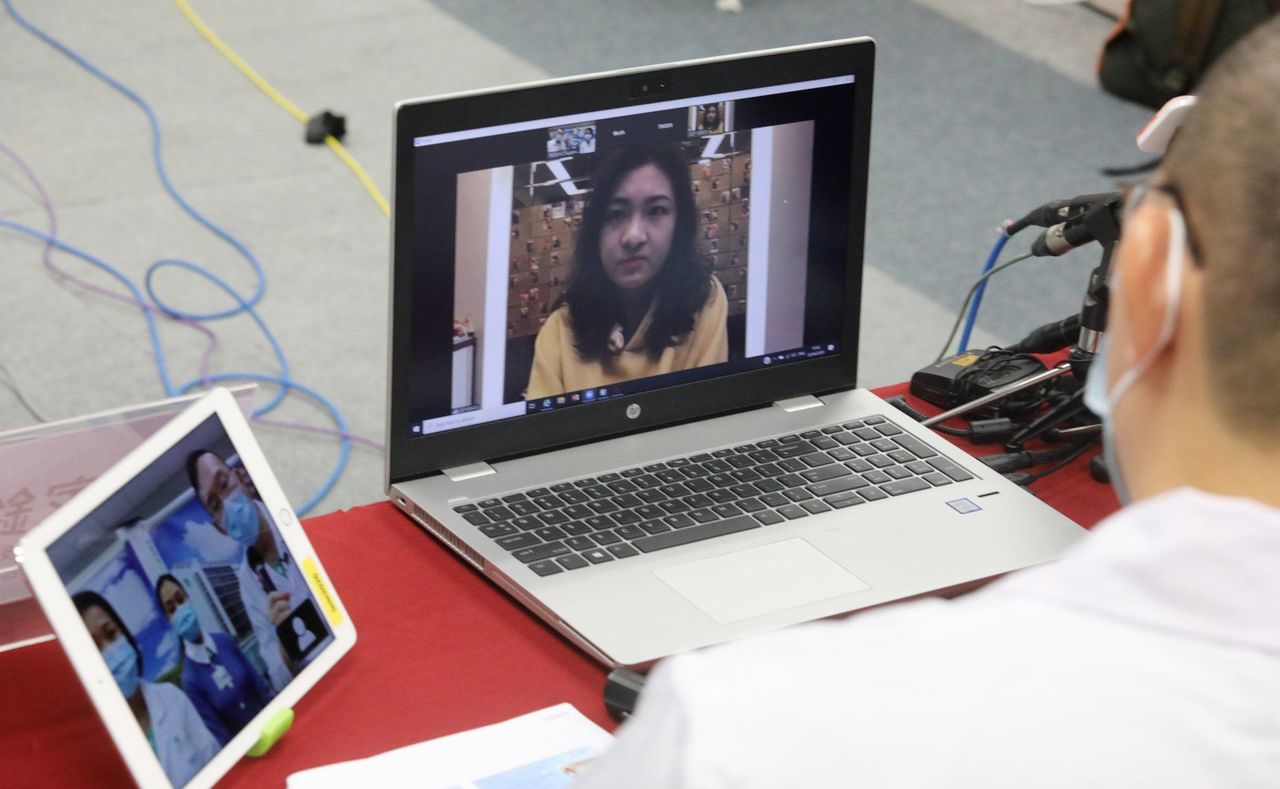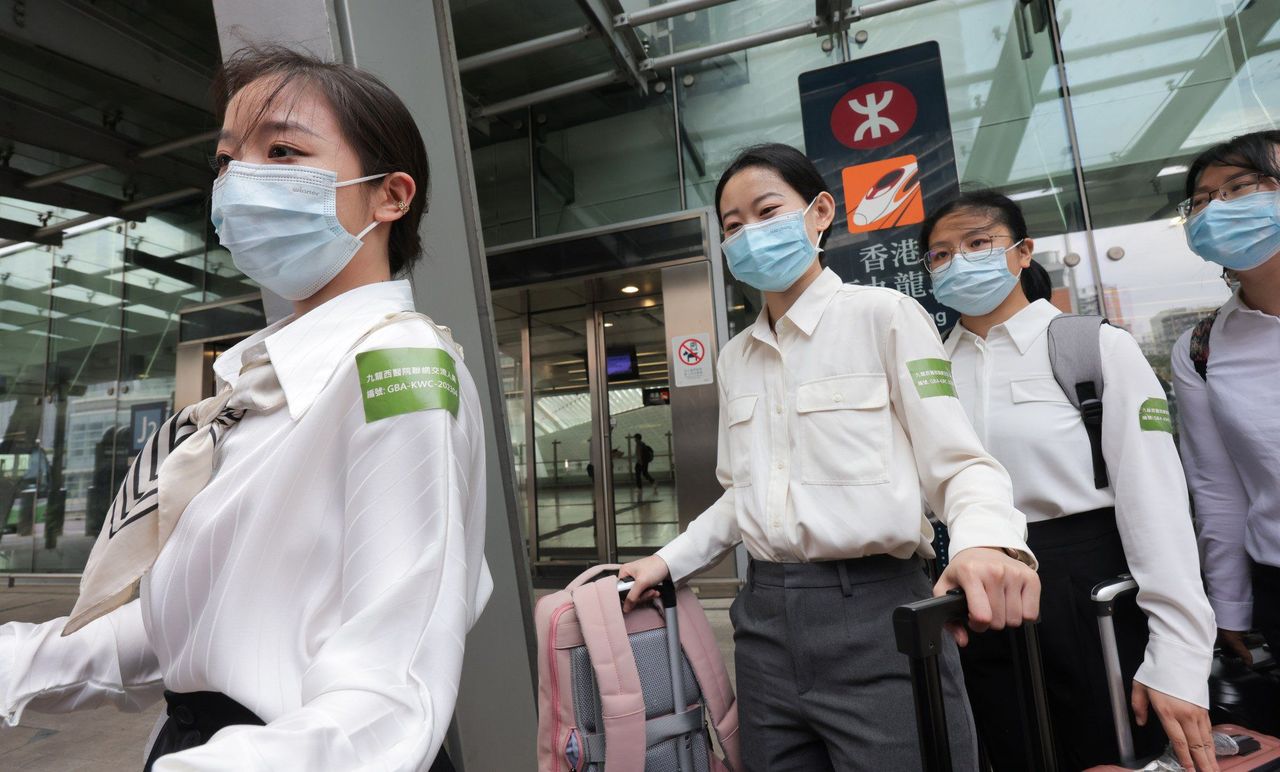Hong Kong News

Post-Covid public healthcare in Hong Kong must go beyond a return to normality
The Covid-19 pandemic brought the world to a standstill, and the Hong Kong Hospital Authority was no exception. Despite facing unprecedented and daunting challenges, the Hospital Authority has been striving to fight Covid-19, while enhancing services and improving the sustainability of public healthcare at the same time.
The Hospital Authority Board’s task group on sustainability suggested different strategies with a focus on increasing services through human capital, hospital development plans and decreasing demand by moving towards the more efficient “Smart Care”, to empower patients, keep them healthy in the community and reduce their need for hospitalisation or specialised medical care.
Manpower shortages have always been a significant challenge for the Hospital Authority. Over the years, we have been managing the situation and introducing measures to attract, develop and retain talent.
Measures have been formulated and implemented to further refine employment-related policies and procedures. Recruitment strategies have been fine-tuned and more flexible employment options have been introduced, promotion prospects and career ladders have been enhanced, and remuneration packages reviewed.
Digitalisation in healthcare, automation, artificial intelligence and robotics are moving at unprecedented speed and this has been further accelerated by the Covid-19 pandemic. The broader use of AI and machine learning will be indispensable in epidemiological prevention, identifying patients at risk and improving efficiency. It also facilitates automation of tasks so that clinical teams can concentrate more on higher-priority and added-value work.
Over the past few years, with the development of HA Go, the “digital front door” for Hospital Authority services has gradually opened and virtual services such as teleconsultation and drug deliveries during the pandemic were well accepted by the general public.
 A patient takes part in a demonstration of a new long-distance medical
consultation service during a press conference at Tseung Kwan O Hospital
on April 3, 2020.
A patient takes part in a demonstration of a new long-distance medical
consultation service during a press conference at Tseung Kwan O Hospital
on April 3, 2020.
With further development of the “virtual hospital” in mind, we foresee expansion of telehealth in the Hospital Authority over the long term to cover teleconsultation for accident and emergency, outpatient, day patient and inpatient services, as well as telehospital visits, and teleclinic, teletraining and tele-outreach services.
While digitalisation is crucial to the sustainable development of Hospital Authority services, the human touch can never be fully replaced. Having a strong and dedicated workforce will always be essential for quality care; to build a workforce for the new era, we expect even more such people.
While we strive to connect to different parts of the world to build a diverse, cohesive and competent workforce, we are also trying to bring in a new career cycle within the organisation that allows more possibilities and flexibility for people of different ages.
Similar to many large organisations, the Hospital Authority’s workforce is getting more diverse. We count among us baby boomers and Gen X, as well as younger groups from Gen Y and Gen Z.
To address the expectations of different generations, the scope of flexible employment arrangements are being extended. While tensions may arise, given the differences in priorities as well as the experience and working styles of various generations, such differences also bring opportunities for change.
With better understanding of the strengths and experience of each generation, and by making the best of them, I am sure we can achieve more together.
Seeking new talent from outside Hong Kong is another key factor in keeping the workforce energetic and sustainable. Leveraging the successful collaboration with the mainland medical support team at the treatment centre for Covid-19, we have initiated a discussion with the Guangdong province Health Commission on a Guangdong-Hong Kong-Macau Greater Bay Area visiting programme for various professionals.
Ten experienced doctors from the Greater Bay Area joined us in April and are now working as part of our clinical teams. In addition, 300 trainee nurses will also participate in the Greater Bay Area speciality nursing knowledge-exchange programme, with the first batch of 70 nurses joining us last month. Under the Greater Bay Area Visiting Scholars Programme, Chinese medicine experts are engaged in integrated Chinese-Western medicine clinical consultation and the training of local Chinese medicine practitioners.
 Participants of the Greater Bay Area healthcare talent visiting
programme arrive at the West Kowloon Station in Hong Kong on April 17.
Participants of the Greater Bay Area healthcare talent visiting
programme arrive at the West Kowloon Station in Hong Kong on April 17.
Last month, a Hospital Authority delegation took part in recruitment events organised by the Hong Kong government in London. The events were very successful, with more than 500 medical students and practitioners participating in person and online to learn about the latest pathway to work in Hong Kong, including registration and specialist training arrangements.
A dedicated team has been formed to provide them with the necessary support and formal interviews have begun. We will continue to proactively recruit non-locally-trained doctors from different regions of the world.
While Hong Kong society prepares to return to normal, we aspire to something beyond that. Simply returning to the pre-Covid-19 era would mean losing three valuable years. Instead, we aim to learn from the past and cultivate a breakthrough mindset that leads us to new heights.
Facing new challenges, we eagerly look forward to a new force of collaborative energy from our colleagues and partners in various sectors to propel us to greater things in pursuit of our mission to provide sustainable healthcare services that help people live healthier and happier lives.











